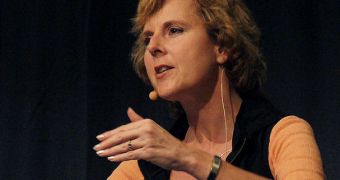One of the only achievements of last December's UN Climate Summit, held in Copenhagen, was the promise that the developed world made to developing and poor countries. The terms of the agreement dictated that rich nations would provide about $30 billion in funding to the rest of the world, over a period of three years, to help them combat the effects of climate change and global warming. Now, a group of developing nations known as Basic (China, India, Brazil and South Africa) urges the developed world to make good on its word and make the $10 billion alloted for 2010 available as fast as possible.
The request was officially forwarded to the nations that pledged the money at a meeting the four states had in Delhi, India. Representatives from Basic said that the countries that promised to help fund the Third World needed to start distributing the money as soon as possible, “as proof of their commitment” to fighting climate change. The issue here is the non-binding nature of the Copenhagen agreement. This was a widely criticized part of it once the UN Summit was over. Nothing that was decided and agreed upon in the Danish capital is legally binding, which means that every government that pledged money for the international funds can backtrack whenever it feels like doing it.
Chinese officials said after the Delhi conference that the first round of money should go to the least developed nations of the world, those in Africa, and also to small island states. The second category is the most likely to experience the full, devastating effects of a global rise in sea levels, brought forth by global warming. Already, many of these states are saying that they are losing territory to rising waters at a very fast pace, so they need to start mitigating these events as fast as possible. This was one of the main reasons why the fund was created in the first place, the BBC News reports.
This week marks a very important stage of the Copenhagen agreement, in the sense that it represents the deadline nations must respect in sending the UN figures of how much greenhouse emissions they will save over the coming years. But none of their pledges will be legally binding, which means that they can pull out of them as soon as they want to. Yvo de Boer, the executive secretary of the UN Framework Convention on Climate Change, said that the deadline was “soft,” and that nations meeting in Copenhagen failed to achieve the international agreement required to make a considerable impact on global warming and climate change. The next UN Summit on Climate Change will he held this December, in Mexico.

 14 DAY TRIAL //
14 DAY TRIAL //